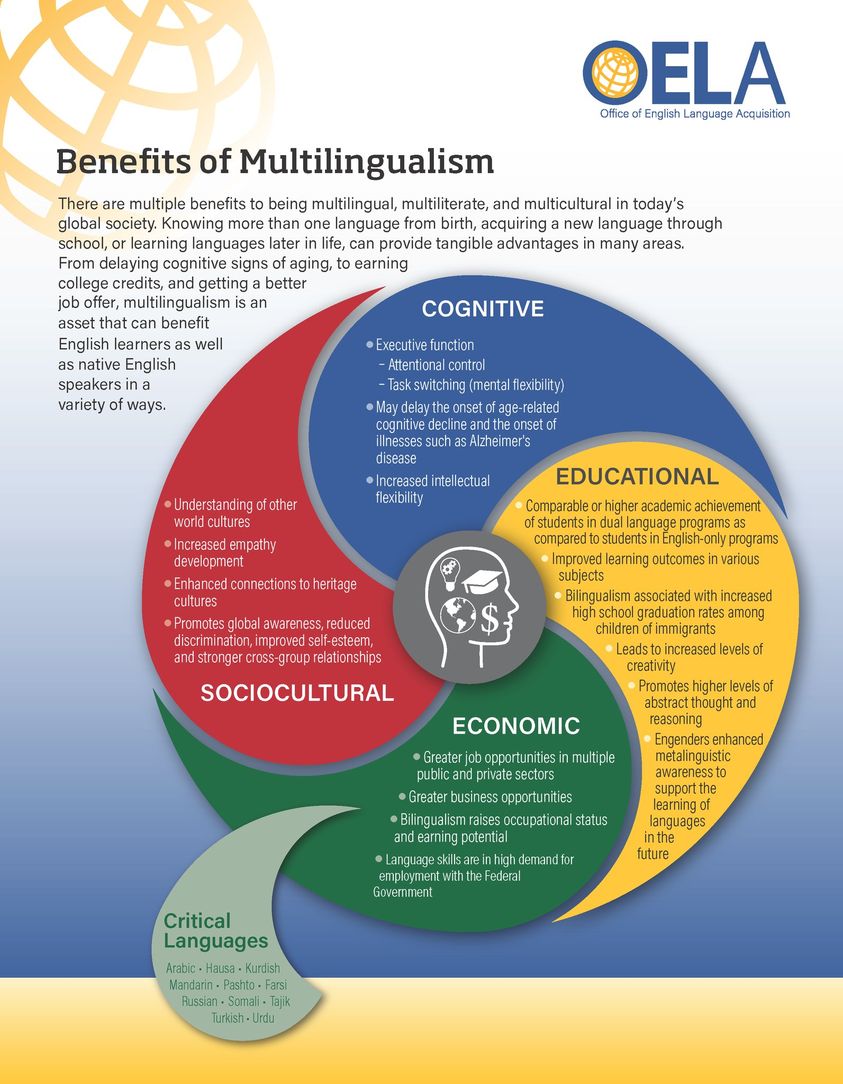
Celebrating Multilingualism: Building on Students’ Linguistic Strengths
At the Maine Department of Education, we recognize that multilingualism is a powerful asset, one that enriches our classrooms, communities, and collective future. Students who speak more than one language bring with them not only valuable communication skills but also diverse cultural perspectives, problem-solving abilities, and a deep capacity for empathy and connection.
Rather than viewing multilingual learners through a deficit lens, we are committed to a strength-based approach that honors and builds upon their existing linguistic and cultural knowledge. Research shows that affirming a student’s home language while providing high-quality instruction in English leads to stronger academic outcomes, higher self-confidence, and long-term success.
Multilingualism is a Superpower
-
Enhances Cognitive Development
Multilingual individuals demonstrate increased executive functioning, creativity, and mental flexibility. -
Promotes Cultural Competence
Language connects us to culture. Encouraging the use of multiple languages helps foster inclusive school environments and global citizenship. -
Prepares Students for a Global Workforce
In an interconnected world, the ability to communicate across languages is a sought-after skill in nearly every career field.
Our Commitment
Through our support of bilingual and dual-language programs, the Seal of Biliteracy, and initiatives that honor the cultural and linguistic development, we are proud to celebrate and elevate the voices of multilingual learners across Maine. Together, we are cultivating classrooms where every student’s language is not just welcomed, but seen as essential to their success and our shared future.
“If we speak to children in a language they understand, it goes to their head. But if we speak to them in their language, it goes to their heart.”
~Adapted from Nelson MandelaBilingual Education
Bilingual education includes a variety of program types in which students learn academic content through two languages. Bilingual programs have benefits for all students, including but not limited to:
- Superior academic performance
- Greater inclusion for multilingual learners
- Ability to understand and relate to others from different linguistic and cultural backgrounds
- Future opportunities for employment in the global economy
The Multi-State Association for Bilingual Education (MABE) has compiled many resources that can support schools interested in exploring, developing, and implementing bilingual programs. See Dual Language Implementation Resources. Contact MABE or the ESOL State Specialist.
Multilingual Education Task Force
The Maine Department of Education has concluded Phase 1 of the Multilingual Education Task Force (METF), an initiative to support the development of bilingual programs in Maine schools. The METF was co-facilitated by the Multistate Association for Bilingual Education, Northeast. The METF convened to address the following topics collaboratively:
- Examination of opportunities to implement dual language education programs [Slides]
- Identifying the challenges and solutions to implement dual language education
- programs [Slides]
- Begin a strategic plan to build the foundation to implement dual-language
- education programs [Slides]
To learn more about bilingual education, its benefits, various program models, and how to begin the implementation process, check out the Multistate Association for Bilingual Education website.
Contact
Melanie Junkins
Multilingual & Bilingual Education State Specialist
Email: Melanie.Junkins@maine.gov
